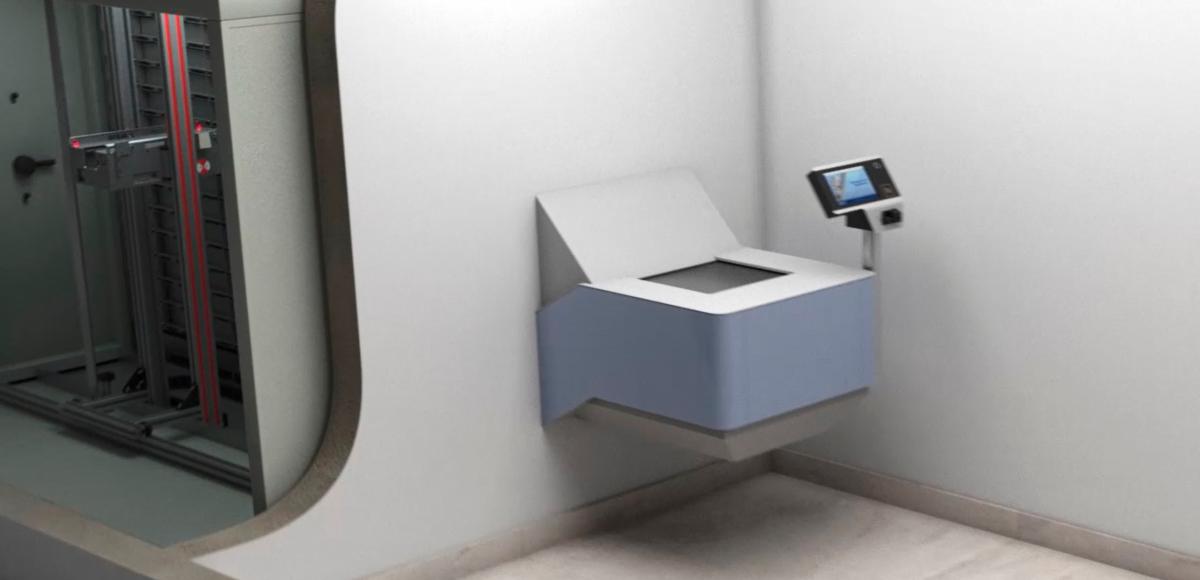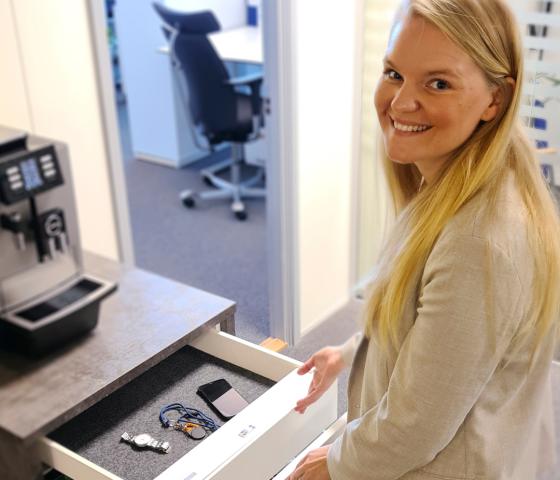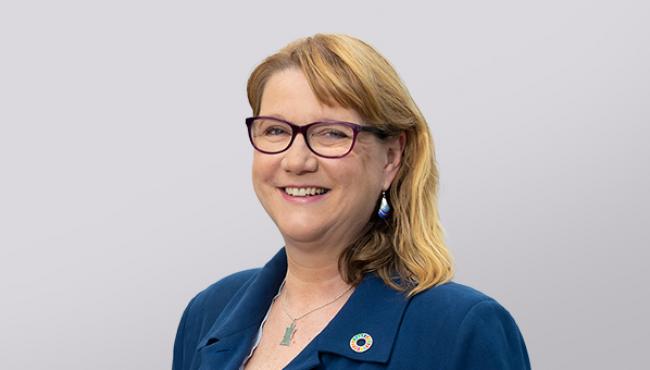
AFRY's customer Gunnebo is the first in the security industry to provide Environmental Product Declarations, EPDs
AFRY’s customer Gunnebo, has taken parts of the company's product portfolio to the next level in sustainability. They have done this by measuring and documenting the environmental impact of their products throughout their life cycle. AFRY has assisted Gunnebo throughout the entire project and as a first step, they have produced Environmental Product Declarations (EDPs) for safes, automated bank safes and safes for ATMs.
Gunnebo AB is a global leader in security solutions, offering innovative products and services to control the flow of people and to protect valuables from burglary, fire and explosion. Through Gunnebo’s business units Entrance Control and Safe Storage, the company offers solutions to various industry segments, such as public transport, public and commercial buildings, banking, high-end retail and high-risk sites. Gunnebo is active in nearly 115 markets around the world.
With the help of AFRY, Gunnebo is the first company in the security and safe storageindustry to issue Environmental Product Declarations (EPDs) for its products in accordance with the international EPD system. The EPD is an internationally recognized and independently reviewed declaration based on Life Cycle Assessment, LCA, that provides information on a product's environmental impact throughout its life cycle, from raw material extraction until it is taken out of use.
The environmental product declarations are a step in identifying the environmental impact of Gunnebo's products. The EPDs contribute to greater understanding of the processes that have a specific environmental impact, which than can become the basis for concrete decisions in product development and innovation.
- This is a cutting-edge project, and we are very happy that we were able to take part in such an important project. The results will really make a difference, both by improving the environmental performance of future products, but also by challenging the industry at large to measure and document the environmental impact of its products, says Anna Karin Jönbrink, Sustainability Expert at AFRY.
Important project for several reasons
By measuring the environmental impact throughout the life cycle, you gain knowledge of where in the life cycle the environmental impact is greatest, you identify so-called "hotspots". As an example, it could be a specific raw material or process that has a major impact on the product's climate footprint. This is an important step in Gunnebo's work to reduce its own and its customers' climate impact.
The Life Cycle Assessment also shows which of the product's materials or components have the greatest impact on the environment within various categories. The results of the Life Cycle Assessment can be used to prioritize measures in product development to reduce the environmental impact expanding over the entire life cycle of the products, for example in material selection, choice of transport or processes, where products are produced and how the product is handled during and at the end of its life cycle, i.e. resource management.
The European Union is currently working on and developing new legislation for products within the framework of the EU Green Deal (the so-called SPI, Sustainable Products Initiative and the development of the Ecodesign Directive). In the discussed proposals, requirements for circular solutions, solutions to reduce environmental impact, Life Cycle Assessments of products, and “product passports” describing sustainability performance of products are proposed. Companies can prepare for the upcoming legislation by doing Life Cycle Assessment of their products already before regulations are in place and develop solutions that may be needed to meet upcoming legal requirements.
- This project is an important headway that shows our ambition to learn more about our products' environmental impact to continue the work of improvement, as well as to be able to communicate fact-based information about our products' environmental impact. The fact that we declare our products' environmental impact through EPDs is a way for us to increase our transparency, as part of our sustainability work, says Kristina Wetterhorn, Group HSE & Sustainability Controller.

A large project with challenges in data collection
Work on the initial two products began in June 2021 and took about six months to complete. When working with Life Cycle Assessment (LCA), it is common that data collection is the biggest challenge. There is often a lot of good information at the various factories, but it can be difficult to sort it so that the correct information reaches the LCA practitioner.
- In this case, we had regular meetings with our contact persons at Gunnebo to ensure that we had a common understanding of the data. In addition, we supported them in how to filter out the information that was needed, says Kristin Fransson, Senior Life Cycle Assessment Expert and Sustainability Consultant at AFRY.
The third product was analysed after the other products were completed and thus it went much faster since we knew Gunnebo's way of working and products better. In addition, our contact persons at Gunnebo had learned more about LCA and what kind of information needed to be produced.
Important lessons to work on
Many lessons learnt and conclusions from the analysis were self-evident, while others are worth following up on in future projects. Examples of recommendations given in one of the LCAs were to work more with Ecodesign to e.g. design the product so that less steel and cement are used. Because steel and cement are two materials that are used extensively in some of the products and contribute to a negative climate impact. Also, the type of steel, how it is manufactured and whether it is recycled or not, as well as the type of cement used in the product affect the outcome of the LCA. Gunnebo will continue to work on these issues as part of their sustainability work.
A challenge for the industry is that some security products, such as safes, are designed to be burglary-resistant, meaning that they are designed to be difficult to dismantle. As a consequence, the product may be difficult to recycle once it reached its end of life. How can you make something that meant to be indestructible, recyclable? This is one of several issues to continue working on.
